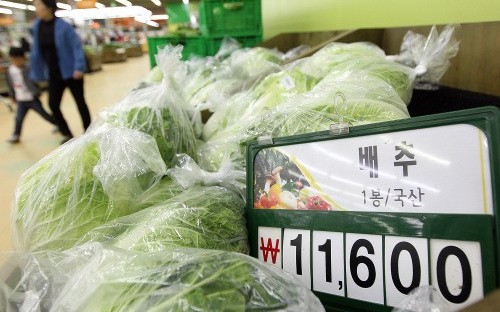For those of you that haven’t sought out this fetid treat – Kimchi is made by fermenting cabbage in any number of ways. Usually there’s plenty of salt, garlic, and red pepper paste to go around, with the addition of the occasional oyster or fish to get the fermentation really going. Let it ferment for a couple weeks – or months and viola! You have kimchi.
As a recent Economist article reported, inflation is rearing its ugly head due to a near 400% annual increase in cabbage prices in the Seoul metropolitan area alone. Part of the reason for this is Korean culture’s inherent protectionism.
As a big fan of Korean culture, I can tell you, that like everyone, they have their quirks. Whether it be only drinking Soju (a Korean liquor) or only buying Korean cars – they are a very introspective society that sometimes is not the most liberal in terms of accepting ideas or products from the outside world.
This seems to be exacerbating an already calamitous problem. The crisis began after South Korea experienced a larger than expected summer rain fall and the cabbage crop lost part of its precious growing season. Only now, after suffering all summer is the Korean government accepting cabbage imports from China.
Korean English language media have called the lower than average cabbage yields a ‘national tragedy.’ The real tragedy is the protectionism in the Korean market and the protectionism we are seeing in other corners of the globe in non-anecdotal terms.
Whether it is buy American or British campaigns in the US and UK respectively, or Chinese currency manipulation, or Norwegian salmon dumping, the world is seeing a resurgence of protectionism. This all while governments keep going to summits and shaking hands to pledge that they won’t participate in the practice of shutting off their markets.
The rise in the price of cabbage is just an example of how when one crop goes bad, globalism can help alleviate the pain at home. Sure there are stories of the opposite – but surely the most good comes from everyone sharing a market rather than staying within our own borders.
Do you have a different opinion on protectionism? Sign into your BusinessBecause.com account and tell me your views in the forum below.
RECAPTHA :
8d
96
1f
ac







